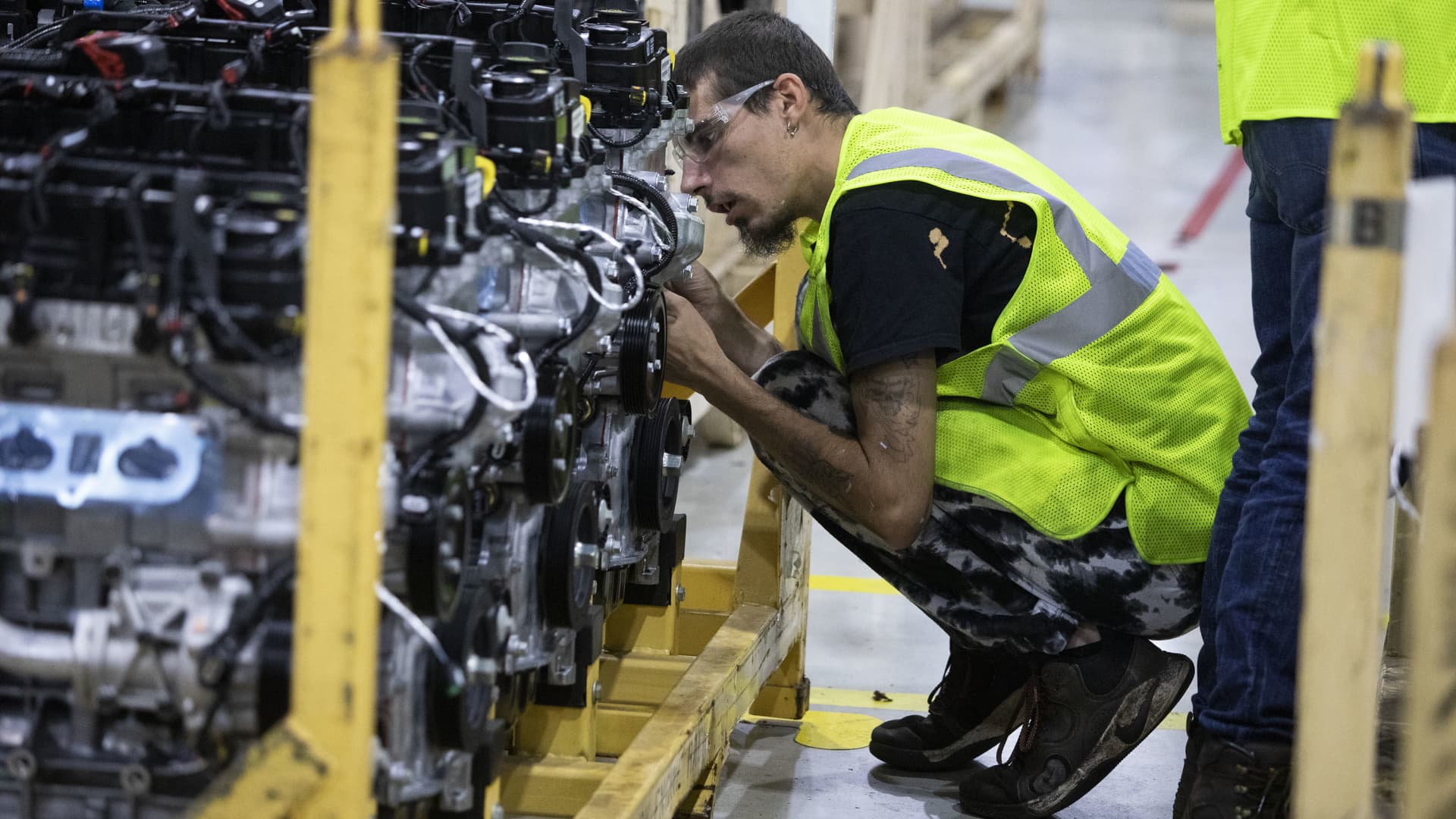Automaker Stellantis expects inflation costs on raw materials to subside next year following significant increases during the coronavirus pandemic, CFO Richard Palmer told investors Thursday.
The spiking costs of critical raw materials used by automakers such as steel, aluminum and others for EV batteries have been largely offset by record pricing of new vehicles, cushioning automakers’ margins. But as price increases slow, costs have yet to follow.
Palmer said he expects the favorable pricing of new vehicles to continue into next year, but said inflation could continue to hit other parts of the automaker’s supply chain.
“What we will see in 2023 is a lower impact from raw material inflation than the one we’ve seen this year. So, the entity of inflation impact, I think will be lower in 2023,” he said when discussing the company’s third-quarter revenue and deliveries. “Inflation may be high on other elements of the cost curve, but they are of a lower entity compared to raw material this year.”
Palmer did not specify what inflationary costs he expected to decrease or increase in 2023. A spokeswoman for Stellantis, which was formed by the merger of Fiat Chrysler and France-based Groupe PSA in January 2021, said Palmer was referring to lower inflation costs of steel and aluminum. She declined to disclose what elements could be higher next year.
Costs across the automotive supply chain have skyrocketed during the coronavirus pandemic, as companies have struggled with logistics, materials and employees.
Ford in September warned investors that the company expects to incur an extra $1 billion in costs during the third quarter due to inflation and supply chain issues. The problems resulted in parts shortages affecting roughly 40,000 to 45,000 vehicles, primarily high-margin trucks and SUVs that haven’t been able to reach dealers.
In June, AlixPartners reported raw that material costs for both electric vehicles and traditional models with internal combustion engines more than doubled during the coronavirus pandemic.

ivermectin 12 mg for sale – purchase atacand without prescription buy tegretol 200mg pills
generic accutane – cheap decadron 0,5 mg buy linezolid 600 mg online cheap
azithromycin for sale online – azithromycin 500mg sale cheap bystolic 5mg
order prednisolone 20mg pills – cheap omnacortil pill how to get prometrium without a prescription
order generic furosemide – buy nootropil pill betnovate 20 gm creams
doxycycline price – buy glucotrol without prescription buy glucotrol 10mg online
oral augmentin 1000mg – how to get duloxetine without a prescription buy cymbalta
order rybelsus 14mg – order levitra 20mg pills buy periactin without a prescription
buy tizanidine no prescription – purchase microzide generic purchase hydrochlorothiazide
viagra oral – cost sildenafil 100mg tadalafil 20mg us
cialis order – sildenafil 100mg sale viagra 100mg generic
cenforce without prescription – order metformin 500mg for sale glycomet 500mg over the counter
order atorvastatin 80mg generic – norvasc 5mg pill zestril 10mg cost
buy omeprazole 20mg pill – tenormin order tenormin 100mg oral
medrol 8mg otc – order triamcinolone 10mg without prescription triamcinolone online buy
order clarinex 5mg pill – priligy cost order dapoxetine 90mg generic
cytotec 200mcg cost – cytotec pills cost diltiazem 180mg
acyclovir 400mg cheap – crestor 20mg ca buy rosuvastatin 10mg generic
buy domperidone 10mg online – buy flexeril paypal order cyclobenzaprine 15mg online
domperidone pills – cyclobenzaprine uk order flexeril 15mg pill
purchase coumadin pill – warfarin over the counter order losartan without prescription
order esomeprazole 40mg generic – buy sumatriptan 25mg without prescription buy sumatriptan online
buy levaquin pills for sale – zantac 150mg pills where to buy zantac without a prescription
mobic 7.5mg usa – buy celebrex for sale flomax 0.4mg pill